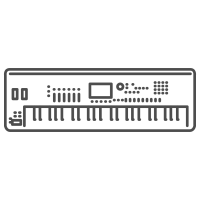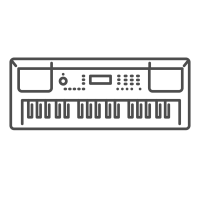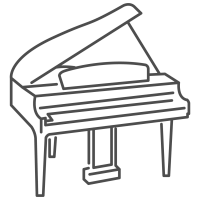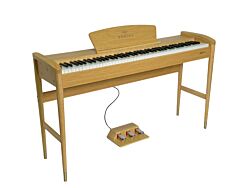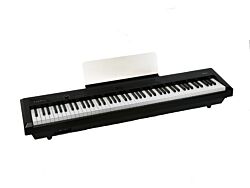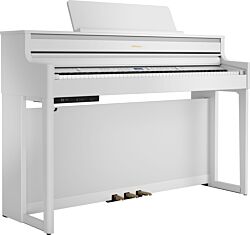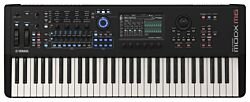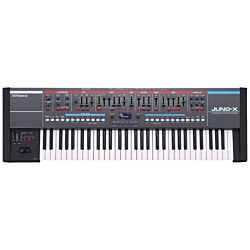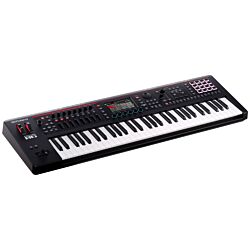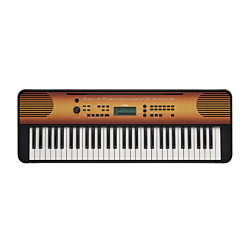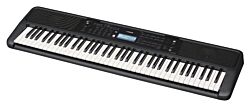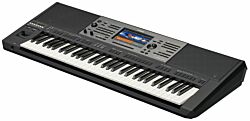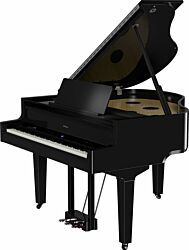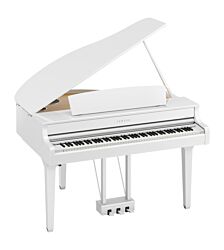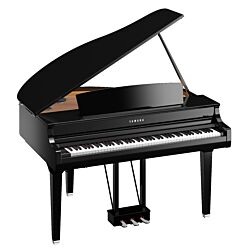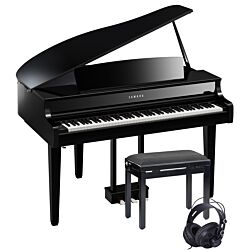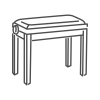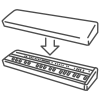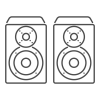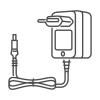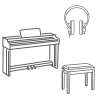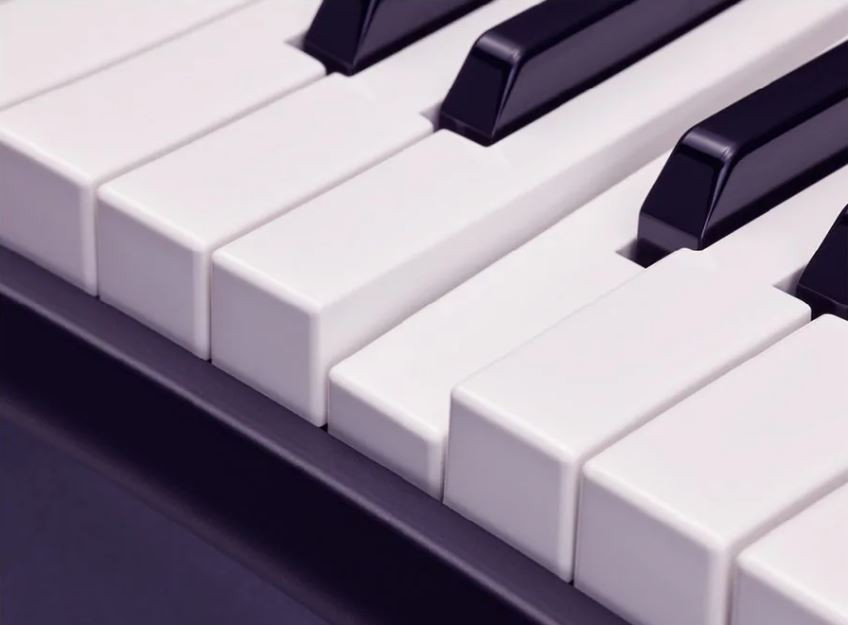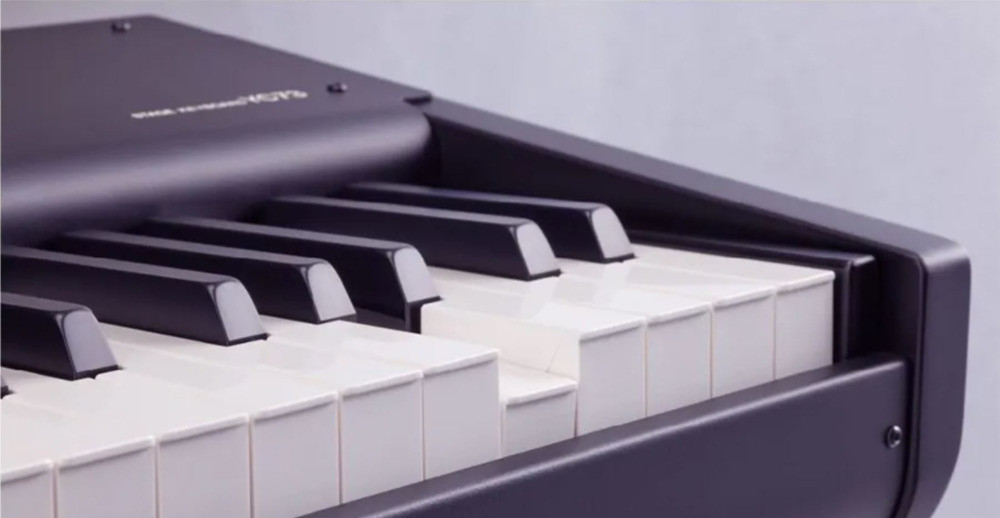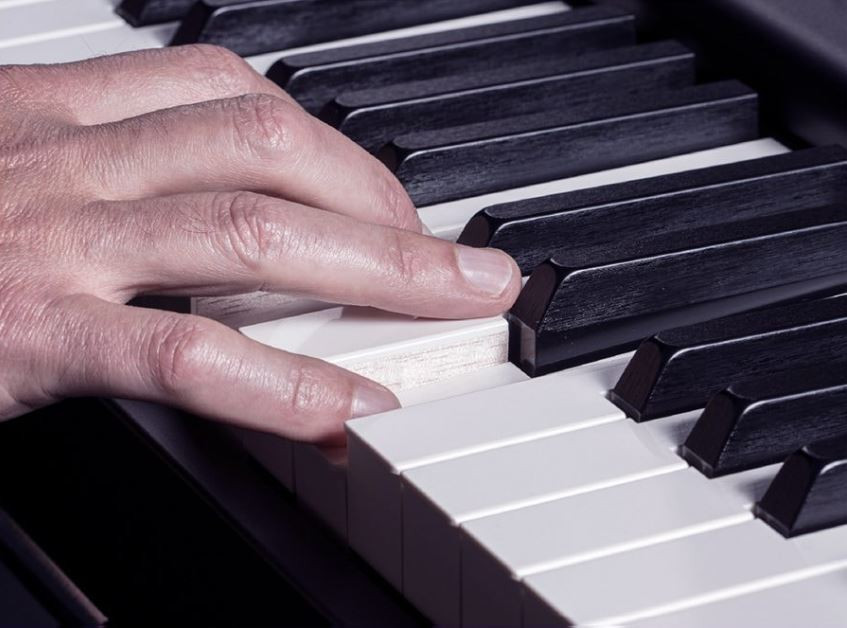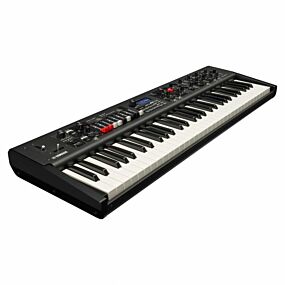Yamaha is now out with a new series of stage pianos that from Yamaha's side offer completely new possibilities for any live performance. The new YC series is packed with a lot of cool sounds, effects, and overall everything that is expected of a stage piano. In this article, we take a closer look at the YC series itself, as well as what features and qualities the three models in the series bring.
Three models for three needs
The three models in the YC series sound as follows; YC61, YC73 and YC88, and as the names suggest, the three models have different numbers of keys. In addition, there are also three different key mechanics;
On the YC61 you see Yamaha's so-called Waterfall Keyboard, which with its unweighted keys gives a traditional feel of an organ and at the same time allows the musician to express him- or herself with piano and e.piano sounds, strings and all sorts of synth sounds.
On the YC73 you get what Yamaha calls Balanced Electrik Piano Action. With these keys you get a balanced and weighted feeling that combines the feeling of a weighted piano and lighter keys, seen on for example the aforementioned YC61. For many, this combination can be perfect for a live performance that includes everything from nuanced piano playing to an advanced synth solo.
At the end of the row is the YC88, whose tangent mechanics have been named Natural Wood Triple Sensor Action. With these keys you get the feeling of a real Yamaha grand piano. This means, that the weighting of keys gradually becomes lighter and lighter, as one moves from the lowest to the highest keys - just like an acoustic piano.
Sound libary
As mentioned, this series is packed with sounds, and first on the list, of course, are Yamaha’s piano samples. The YC series contains i.a. two fantastic samples from their concert grand pianos - Yahama CFX and Yamaha S700, which gives ample opportunity to express themselves as if it were a grand piano you played on. Among the piano sounds is of course also an ‘electric grand’ taken directly from the Yamaha CP80 - an electric piano that was introduced way back in 1978.
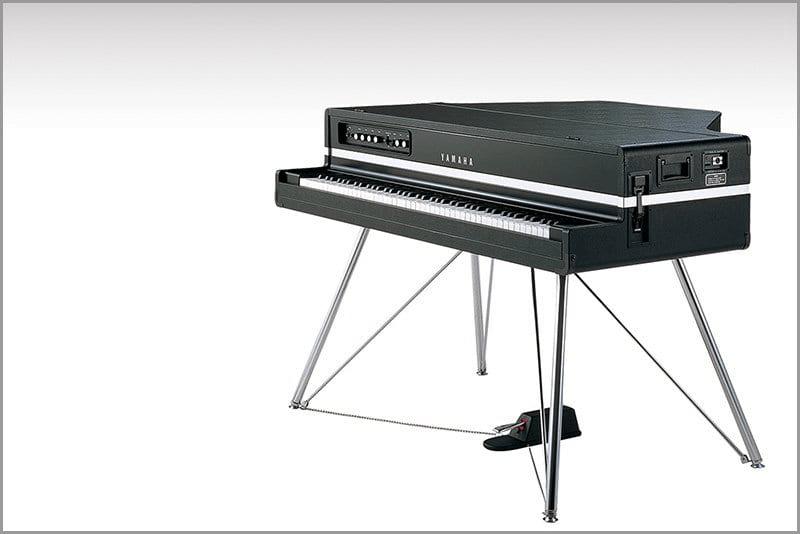
Of course, there are also a number of options for e.pianolyde to suit any genre. The list includes these:
- 78 RD has a high quality sound that is round and clean. It fits most genres, and is perfect if you want to add effects such as chorus or delay.
- 75 RD has a more 'dirty' sound, and therefore fits perfectly with, for example, funk.
- 73 RD has a more Vintage e.piano sound, and works perfectly for ballads, fusion, or as an accompaniment to a singer.
A brand new feature in the YC series is Drawbars, which originally come from the organ. Back in time, with these Drawbars you could simulate the sound from, for example, a flute or an oboe. A closer look at these Drawbars is brought into focus under the section called Sound Control. Drawbars go hand in hand with electric organ, and in the YC series it is of course included. Here you can see both Yamaha's VCM Organ and their FM Organ. With these you get a completely classic organ sound, which you can quite easily set, so you get exactly the organ sound you want.
Of course, one will also find a variety of strings, synth pads, synth leads, synth basses, winds, and many other sounds.
Sound Control
Despite all the sounds that already exist in the YC series, you have ample opportunity to create your own sound. The three models are arranged in different modules, each with its own characteristics. The image below illustrates these modules separately.
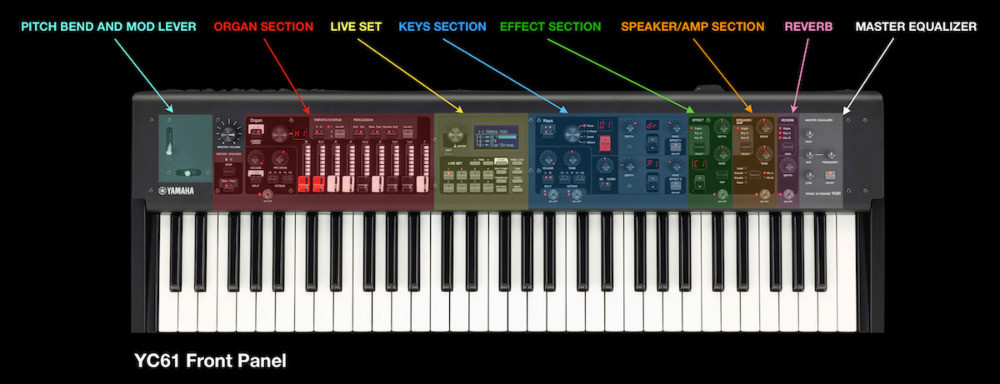
In the organ module you can adjust and model the already existing organ sounds, with for example "rotary speed", vibrato, pre-drive and chorus, and if you want to play a more rhythmically oriented organ, there are different variations of percussive settings. Of course, there are also the aforementioned Drawbars, which are a little more complicated than you might think. Drawbars work in such a way that they each control an overtone to the tone being played. That is, for example, the first bar, named 16 ', controls the volume of the note that is one octave (the 8th note relative to the root note) below the note played. The same goes for the sixth bar, which has the name 2 2/3 ’. This just controls the volume of the note that is an octave + a fifth (the 12th note relative to the root note) over the note being played. It is a relatively complicated system, and it therefore requires one to familiarize oneself with this system, in order to understand the purpose of these Drawbars.
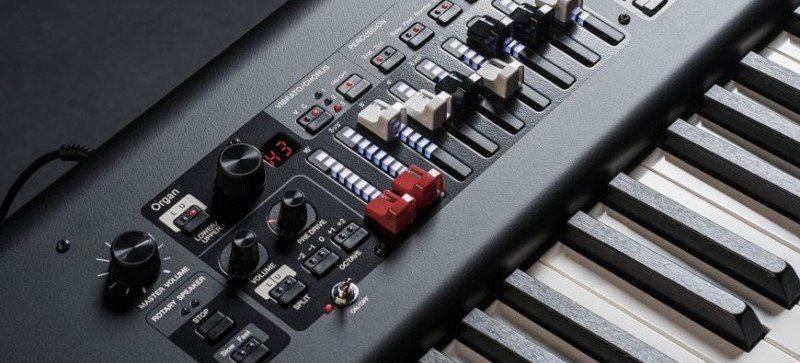
In the middle module there is the so-called "live set". Here you will find a smaller screen that gives a good overview of, among other things, what sounds and effects are active, you can change and save presets, make all sorts of settings, etc.
Next comes the “Keys” module. This is where you will find various sounds, whether it is piano, e.piano, strings or synth.
Then there are three different effect modules, where you can set effects such as reverb, drive, chorus, tremolo, flanges, etc. Finally, you will find a module to control the master equalizer.
VCM
One of the things that makes the YC series special is a certain technology called "Virtual Circuit Modeling". Since the 1990s, Yamaha has been developing on this technology that very accurately simulates an analog effect circuit. It is precisely these individual effect modules that make this simulation so accurate, and it therefore means that no details disappear. It is because of this VCM technology, Yamaha is able to digitally recreate effects and samples in the moment to perfection.
Build to last
Yamaha's YC series is made for playing gigs, and it is therefore expected that such an instrument can withstand such treatment. On Yamaha's own website, they describe the design of the YC series as follows: “YC Keyboards are not just designed to be played. They’re made to be bumped, jostled, scratched, crammed into a van, stuffed into an overhead bin and adored by players and fans, gig after gig. In short, they’re built to last, like the company that stands behind them”.
The perfect stage piano
To that extent, it can be said that Yamaha with this series has raised the bar for what one can expect from a stage piano - both from Yamaha's own production, and also from the competitors'. All in all, there is not one thing to put a finger on, in Yamaha's new YC series.


